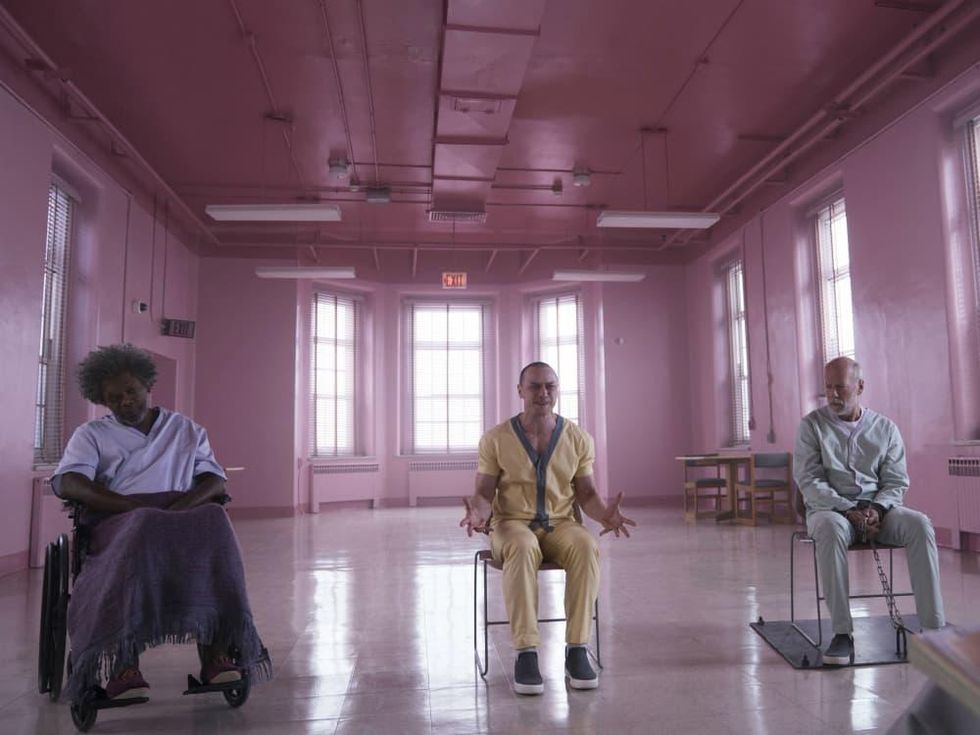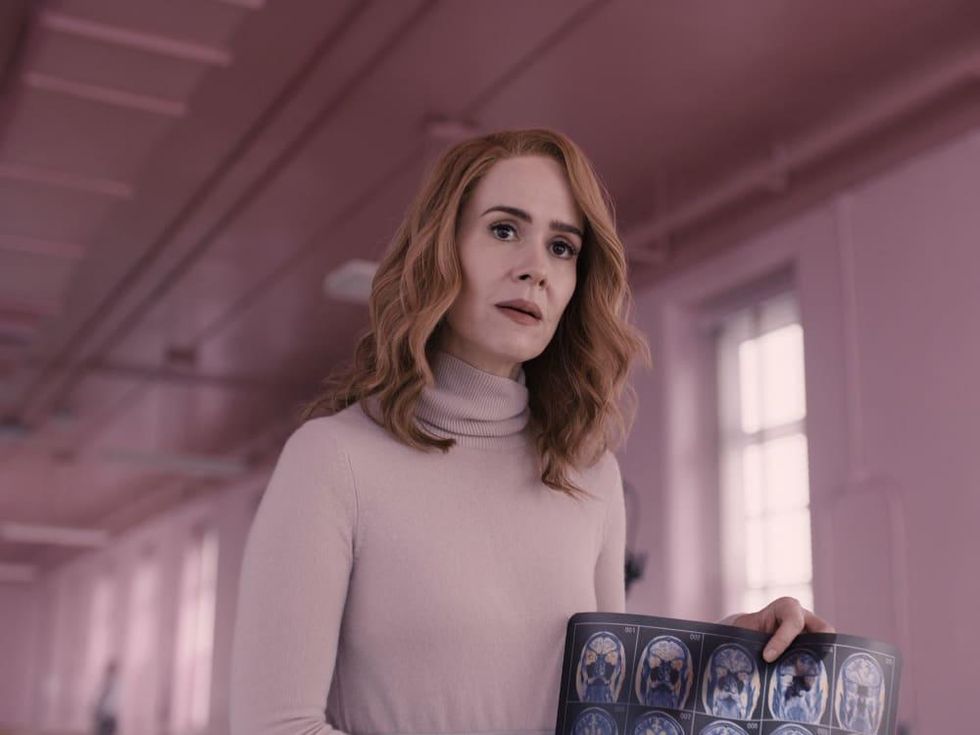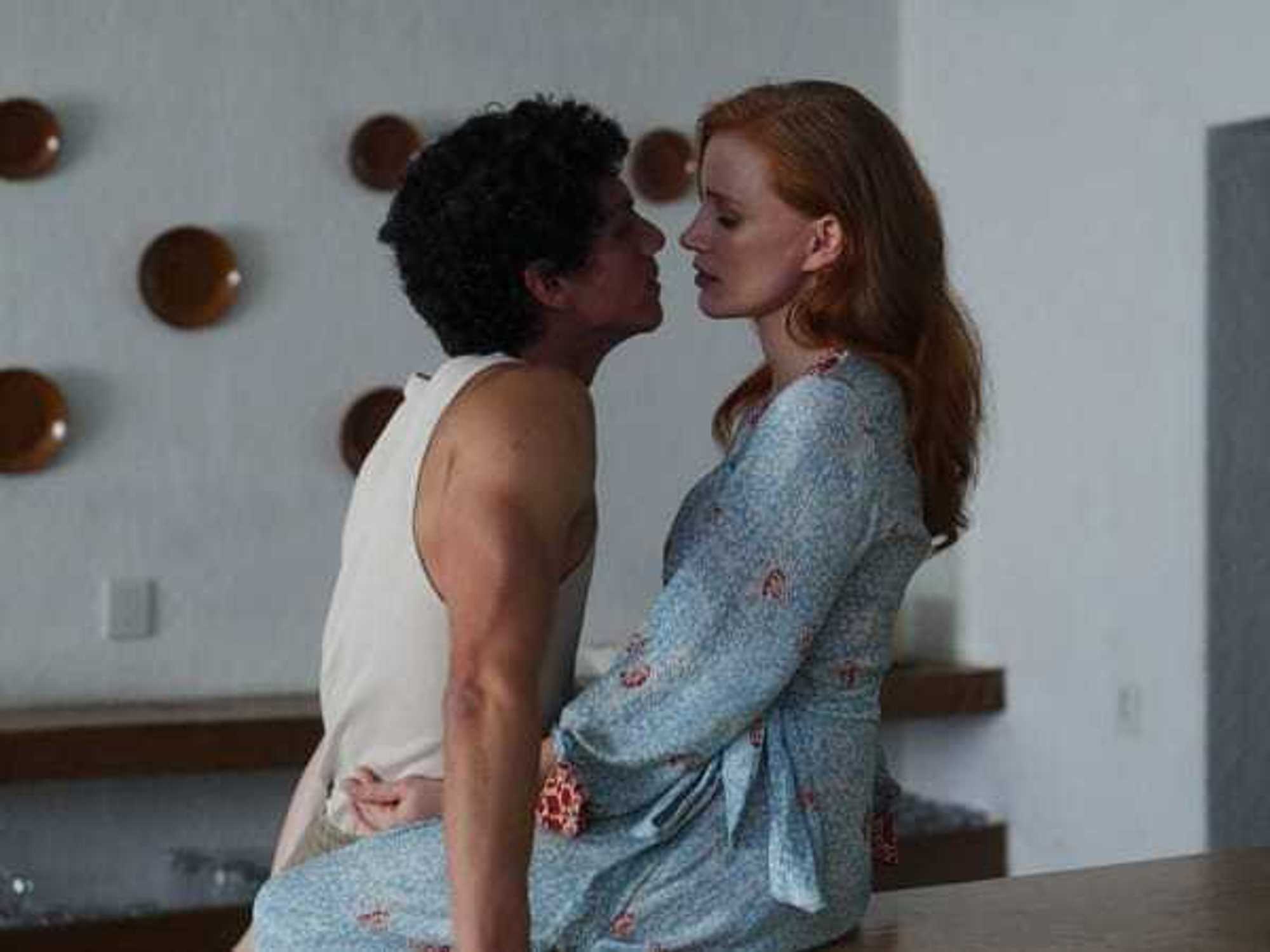Movie Review
Glass breaks the spell of M. Night Shyamalan as a good director
The career of writer/director M. Night Shyamalan has been a roller coaster, to put it mildly. He blasted off with 1999’s The Sixth Sense, and delivered a dynamite follow-up effort with 2000’s Unbreakable. The downturn that started with 2004’s The Village lasted until the surprise success of the low-budget Split in 2017, which turned out to be a backdoor sequel to Unbreakable.
As is the law in Hollywood, that now leads to the completion of an unexpected trilogy with Glass. Just as he did in Split, James McAvoy plays multiple different personalities within the body of Kevin Crumb, who suffers from Dissociative Identity Disorder. He’s still in the habit of kidnapping teenage girls at the behest of one of those personalities, and David Dunn (Bruce Willis), who you will remember has superhuman traits of his own, is trying to track him down as part of his self-proclaimed role of vigilante.
A confrontation between the two leads to them both being imprisoned in a psychiatric ward, where Dr. Ellie Staple (Sarah Paulson) tries to convince them, along with the previously imprisoned Elijah Price (Samuel L. Jackson), that their powers are all in their heads. Could everything each one of them has done all be delusions of grandeur?
Much of the criticism that has been laid at the feet of Shyamalan is that he is beholden to story twists, trying to pull the rug out from under the audience whether it’s warranted or not. Nothing much has changed, given the reveal of Dunn at the end of Split and a pre-screening graphic at Glass urging everyone to “keep the secrets of the film.”
Speaking of delusions of grandeur, this pleading is an indication that the so-called "secrets" the film holds aren’t that great to begin with. Worse, Shyamalan structures the story around a bunch of smaller mysteries, making the storytelling much too deliberate in the process.
This being the denouement of his trilogy, Shyamalan really wants to pound home the comic book themes of the story. All subtlety is thrown out the window, as multiple characters overly explain the parallels between Kevin, David, and Elijah and the typical comic book story. The audience is put in the curious position of knowing way too much about one aspect of the film and much too little about other parts, showing that Shyamalan has no sense of balance.
To his credit, he is obviously loyal to actors who helped bring him success, as not only do McAvoy, Willis, and Jackson reprise their roles, but so do Anya Taylor-Joy from Split and Spencer Treat Clark (Dunn’s son) and Charlayne Woodard (Elijah’s mom) from Unbreakable. This loyalty is hit-and-miss; Taylor-Joy is an on-the-rise actor who comes off the best, but Clark and Woodard are hindered by wooden acting and bad makeup, respectively.
As it was in Split, by far the best part of the film is getting to see McAvoy cycle through Kevin’s various personalities. If it was just the different voices, of which we get to hear 20, it would be impressive enough. But the physicality he shows with each one is astonishing, as is the seamlessness he demonstrates in going from one to another. No joke: It’s an Oscar-worthy performance in service of a film that doesn’t deserve that type of talent.
Both Willis and Jackson are fine, but they never truly get to let loose. Per the strictures of the story, Jackson must act nearly catatonic for much of the film, while Willis seems to have close to zero emotion whether he’s talking with someone or in a huge fight.
It’s time to face the facts that, by and large, Shyamalan is not a good filmmaker. He certainly has some interesting ideas, but his impulse to keep things secretive instead of playing a story straight does not serve those ideas well. Until he shows himself worthy of attention, his films should be ignored.




